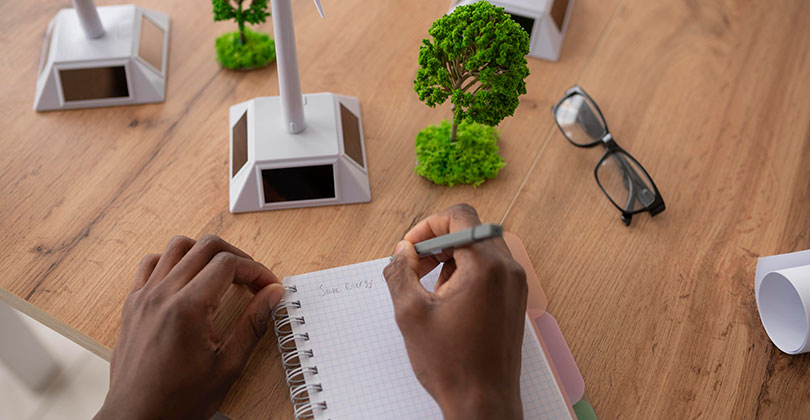
What Is Sustainable Business Model Innovation (SBM-I)?
A forward-thinking approach that seeks to create long-term value for all stakeholders and not just the company’s shareholders, Sustainable Business Model Innovation (SBM-I) builds on traditional business model innovation but unites strategy and sustainability in a mutually reinforcing, company-wide philosophy.
SBM-I involves stress-testing the company’s current business model to identify its sustainability limits and explore its potential to create new environmental and societal value. Modular transformations are applied to address the limits and develop potentials, which allows for innovating and fine-tuning new business models until sustainable value is reached in line with competitive advantage.
Benefits With Our Service:
Denver Cleaning Service Company, your satisfaction is guaranteed! If for any reason you are happy with your cleaning service, simply call us within 48 hours of your service, and we’ll touch up any spots you’re dissatisfied with.
What Our Clients Say:
"Maintaining a high level of creative and innovative research in plant breeding is essential for the Dutch biotechnology company KeyGene N.V. The two-day Creative Thinking and Innovation Workshop gave us new concepts and tools to assist management and employees in their creative and innovative thinking and also in improving our own works council daily work.”

Dr. Diana Rigola
Scientist, KEYGENE N.V.
“Our Blue Ocean Strategy project with Six Paths resulted in internalising new tools and ways of thinking, followed by successfully launching innovative products targeted at under-addressed customer groups. I was in particular impressed by the depth and thoroughness of their approach to the subject matter, creating tangible added value for us as their clients. It made a difference for us and we warmly recommend their work.”

Paul Markovits
Marketing Director, Heineken
“Continuum of innovation is key in a startup. The lean startup process is always at the verge of new products development. Fast prototyping and validation of concepts must become a religion. Hence, when in the field, it is good to get someone with an external point of view who can take one step behind before you make the big jump. This is what Six Paths is all about. Supporting growth and helping you staying the course are the main assets they will bring to you.”

Georges Caron
CEO, Keemotion
Frequently asked question:
The short answer is yes, a business can definitely be sustainable and profitable. But that requires a long-term, holistic view towards value creation. An insightful McKinsey article on value creation highlights the tendency of managers and investors to prioritise short-term profitability such as earnings per share over the creation of long-term value.
The article asserts that “value creation is inclusive”, and that companies with short-term financial priorities contributing to climate disasters are directly reducing shareholder value through cleanup costs and fines as well as damage to the company’s reputation. In the same vein, it contends that sustainable businesses facilitate stronger economies and catalyse progress such as reducing global poverty and fostering breakthrough innovations for a better quality of life.
In a nutshell, for a business to be both sustainable and profitable, it first needs to create long-term value that benefits the society and environment as well as its direct shareholders.
The article asserts that “value creation is inclusive”, and that companies with short-term financial priorities contributing to climate disasters are directly reducing shareholder value through cleanup costs and fines as well as damage to the company’s reputation. In the same vein, it contends that sustainable businesses facilitate stronger economies and catalyse progress such as reducing global poverty and fostering breakthrough innovations for a better quality of life.
In a nutshell, for a business to be both sustainable and profitable, it first needs to create long-term value that benefits the society and environment as well as its direct shareholders.
A circular business model is designed to eliminate waste and pollution. The three basic strategies for a circular business model are:
a) Retain Product Ownership (RPO): Instead of selling, a manufacturer rents or leases its products to customers.
b) Product Life Extension (PLE): Products are specifically designed to last longer, which creates opportunities for markets in used products.
c) Design for Recycling (DFR): Manufacturing processes and products are designed to maximise the reusability of materials in new products.
a) Retain Product Ownership (RPO): Instead of selling, a manufacturer rents or leases its products to customers.
b) Product Life Extension (PLE): Products are specifically designed to last longer, which creates opportunities for markets in used products.
c) Design for Recycling (DFR): Manufacturing processes and products are designed to maximise the reusability of materials in new products.
Whether you’re looking to implement circular, profitable business models or create eco-friendly products and services, Six Paths Consulting will work with you to turn sustainability into a win-win situation for your business, the environment, and our society. Talk to us to find out more.




